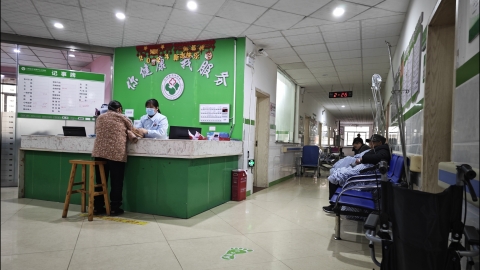What department should I visit at the hospital for dampness syndrome?
Generally, individuals with excessive dampness can consult the departments of Traditional Chinese Medicine (TCM), gastroenterology, dermatology, rheumatology and immunology, or endocrinology. Detailed explanations are as follows:

1. Department of Traditional Chinese Medicine: In TCM theory, excessive dampness is associated with dysfunction of the spleen and stomach in transforming and transporting fluids. Symptoms may include a heavy sensation in the body and thick, greasy tongue coating. The TCM department uses syndrome differentiation to guide treatment with herbs that resolve dampness and strengthen the spleen, thereby improving overall condition.
2. Department of Gastroenterology: Excessive dampness often accompanies digestive issues such as abdominal distension, diarrhea, and poor appetite. The gastroenterology department can assess gastrointestinal dysfunction and relieve related symptoms through medication or dietary guidance.
3. Department of Dermatology: Excessive dampness may trigger skin problems such as eczema, acne, and itching. Dermatology can provide targeted treatment for skin manifestations while also incorporating dampness-resolving therapies to reduce symptom recurrence.
4. Department of Rheumatology and Immunology: If excessive dampness is accompanied by joint pain, swelling, or limited mobility, it may be caused by dampness affecting the joints. The rheumatology and immunology department can assess for rheumatic diseases and implement targeted interventions.
5. Department of Endocrinology: Excessive dampness may be related to metabolic abnormalities, such as obesity and fatigue. The endocrinology department can evaluate metabolic status and assist in alleviating discomfort caused by excessive dampness through metabolic regulation.
In daily life, moderate exercise, reducing consumption of cold and raw foods, and maintaining a dry environment can aid in managing dampness. If symptoms persist or do not improve, individuals should seek appropriate medical care based on specific symptoms to avoid delaying timely management.




